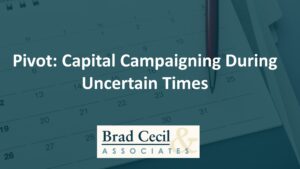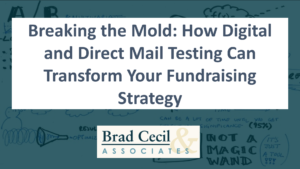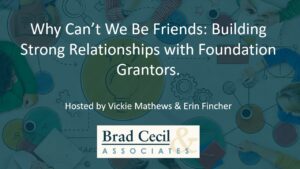The importance of storytelling when communicating your nonprofit’s mission is essential, especially now, when your donors are most likely wondering how your services have changed or been impacted by COVID-19. Stories remain the most effective way to communicate the impact donors make, by putting a name and face to the lives they change with their gifts.
However, as the pandemic has affected your organization, it has affected story collection as well. You may be struggling to meet with clients in person and stay connected. As we’ve all adapted to social distancing and sanitizing requirements, our team has worked locally to interview clients and we’ve learned a few best practices to share.
Plan Ahead
Come to your visit well-prepared with the proper supplies to ensure safety and efficiency. Here’s a suggested supplies list:
- Release forms with clipboard
- Masks
- Hand sanitizer
- Water, if working outside
- Extra pens
- Camera with extra batteries
- Notebook for taking notes
Respect Boundaries
As always, a mask is needed when interacting with clients and people receiving services. Be respectful if people prefer to keep car windows rolled up if it is a drive-through system or prefer that you stay physically distanced at all times during the interview. Safety for the client and you is the number one priority, but you will also build trust through the interaction if you respect personal boundaries.
In addition, if you’re taking photos, it’s important to bring a camera with a zoom lens that allows you to stand six feet away or more if you want to ask people to remove their masks. Photos with masks included also represent the time we’re living in and give donors a glimpse into the real day-to-day experience at your agency.
Show Humility and Empathy
COVID-19 has shown us that anyone can find themselves in need of help due to unforeseen circumstances. You may find that who’s in line for food, or other services, surprises you. It’s essential to see yourself in a person’s shoes when approaching them with questions about their experiences. Finding common ground is important to getting people to open up.
That being said, approach clients with confidence—don’t expect them to come to you. It’s important to guide the conversation, but not make the interaction feel like a survey. The more emotion and detail you can capture, the more compelling the story can be. Practice active listening and take general notes as well as direct quotes. If the interviewee is comfortable with it, record the interview.
Here are a few suggested questions that can be altered depending on the type of services you offer:
- How many people are in your family/household? Can you share first names and ages?
- What were the circumstances that brought you here today?
- How long have you been coming to this agency for help?
- If you didn’t have a place like this to go, what would you do?
- How does it feel to have a place like this to go?
- If you had an opportunity to talk to someone who donates money to this organization and makes these services possible, what would you say to them?
We share more tips on great storytelling here.
Get Creative
If the circumstances surrounding the pandemic prevent you from interacting with any clients in person, consider calling or video chatting with someone you’ve spoken with in the past who signed a release form. Even if you’ve shared their story before, COVID-19 has likely affected them, as it has all of us. Getting an update on how things have changed and how your nonprofit is serving them during these especially difficult times will be like sharing a whole new story.
You’re Ready!
Storytelling in fundraising has been made more difficult by the pandemic but doesn’t have to be impossible. By being well prepared, respectful, and creative, you can capture stories that tell your donors exactly how you’ve made a difference during COVID-19 and have transformed lives at a very vulnerable time. It’s more important now than ever to communicate well with your donors and show them what a transformational impact their gifts make.





